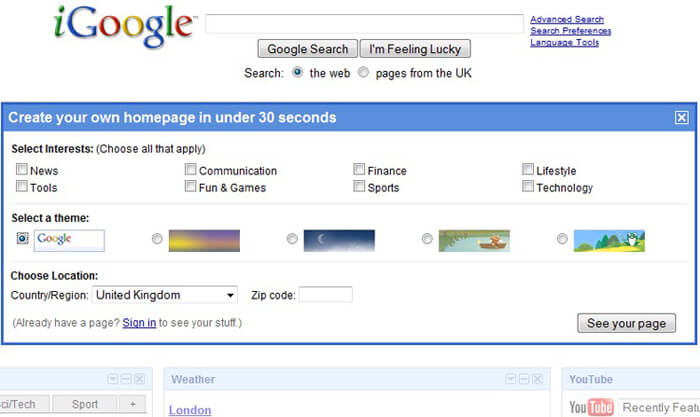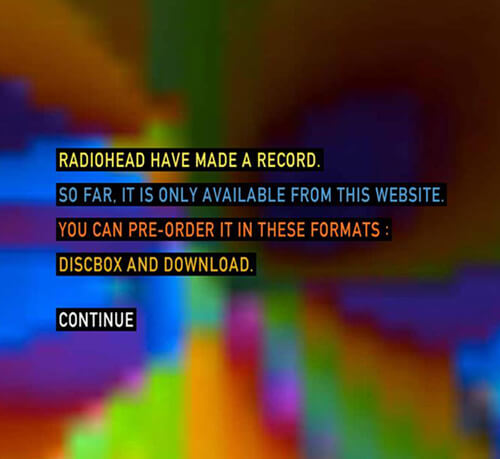Published in 2009, Six Pixels of Separation is a decent introduction for total beginners on the topics of digital marketing, social media, personal branding and entrepreneurship.
Here’s the premise: our long established ad-based interruption-driven TV, radio and print advertising industry has been undermined by the internet, hence the idea of “pixels” instead of “degrees” of separation. 👥
Throughout the book the author passionately discourages the top-down quasi-religious echo chamber of ingrained business practice. ⛪
It’s fair to say that although many 21st century businesses are former traditionalists weening themselves from the Old Media Empire, there’s still much to be desired.
The general consensus is to stop broadcasting and start connecting. But I’m sure there are representatives of legacy industries/jobs/positions in which fully-feathered nests will not be given up so easily. 📺📻🫤
This book is ideal for internet marketing beginners wanting to learn basic principles. If you’re a seasoned marketer, there’s probably not much point reading it because there’s nothing ground breaking here, but even so, some small businesses come online for the first time, do everything wrong and are quite clueless. 🥴
Chapters
- I Google You… Just Like You Google Me
- The Trust Economy
- Entrepreneurship 2.0
- Faith-Based Initiatives, Viral Expansion Loops, and the Long Road
- Know Control
- The Real World
- You Are Media
- From Mass Media to Mass Content
- Digital Darwinism
- From Mass Media to “Me” Media
- Burn the Ships
- Tribal Knowledge
- Digital Nomad
- Participation 2.0
From Print to Web
I’d better tell you a bit about the author. Mitch Joel was a journalist in the eighties and started a digital Marketing Agency back in 2003.
Unable to get a gig as a writer in trade publications, he began independently producing online articles about his line of work using a free tool by Google called “Blogger”. (Most of us are on WordPress or something else these days!)
This was a way for him to reach new clients, make a name for his agency and “publish his way in” to the web industry. ⌨️
From Journalist to Blogger
Most journalists are, among other things, trained in editorial standards, critical thinking and shorthand. ✅🤓
But a business owner with no budget and no formal education in publishing can still earn market influence. 💘👍
This is in sharp contrast to the classic long-winded publishing route via an editor, mock up, printer, distributor and all the other gatekeepers, barriers or hurdles.
Traditional channels for marketing, communications, advertising and public relations are cost prohibitive for smaller businesses who won’t even know if an ad campaign was effective until it’s over. ⛳🤔
Editorial marketing, online copywriting, blogging – call it what you will – is how people consume information. Part of business is giving your market what they want. When your audience demands rich, useful, informative content on a mobile device that helps them reach the correct decisions about what they buy, why withhold it?
“These newer channels – the ones that make Six Pixels of Separation possible – seem confusing, counter intuitive, and even scary to some corporations. They’re worried about “opening up”. What choice does any business have in this new world of radical transparency?”
The Book is Old
Some of the digital tools mentioned throughout are out of date, have changed significantly or have been retired. 🔧🖥️🪦
These include Google Alerts (not as good as it used to be, which is why I switched to Talkwalker Alerts), Google Reader (gone), iGoogle (gone), Technorati (shifted its focus).

I still miss iGoogle. It was a personal RSS homepage that eventually shut down
In principle the book has aged reasonably well. It puts most emphasis on the why and what questions businesses have about being successful. 👥❓
If you want to learn “how” to do things you’re better off using the internet to look up tutorials and guides. 💻🧐
The Trust Economy
I liked the second chapter – The Trust Economy – in which the notion of “giving before you get” is examined through the likes of eBay, Amazon and the social economy of product reviews (which sadly, does include lots of fake and fraudulent testimony). ⭐⭐⭐⭐
There’s also a spotlight on the music industry and its long suffering business model. 🔇
In 2007 Radiohead released their album In Rainbows for free. Fans could download the album and pay what they thought the music was worth.
About 40 percent of those who downloaded In Rainbows chose to pay an average of $6, which is not bad for an industry in which selling music as media is hard. 😬
Obviously, some people will steal music regardless of how a band choose to distribute it, but at least Radiohead got some of their money’s worth when they earned $10 million in less than a week. 🔊
Lars Ulrich of Metallica famously opposed Napster over copyright infringement and royalty disputes. This actually backfired and got the band a bad rep back in 2000. 🧨💥
Radiohead, on the other hand, took the unprecedented step of giving away music knowing a decent chunk of true fans would cough up. They trusted their audience to reciprocate. 🫂
Let’s get one thing straight though: the band had spent years building their reputation and creative output. ⚡💪
On displaying trust, Joel says:
“It’s a prime example of the trust economy and this new marketing value system.
When you engage in a conversation and treat your consumers with respect and as your peers, magical things will happen.
It worked because Radiohead has already spent six albums’ worth of time and touring adding value to their community.
While it definitely did not outperform the sales of some of their past hits, the concept created an overarching halo effect that reopened the conversation around paying for music.”
It’s hard for the traditionalist businesses owners to reconcile themselves with the idea of giving anything away because it flies contrary to concept of being logical, selfish and profiteering. 😶
Some people simply fail to see or participate in the trust economy.
Quick story…
Give It Away ♟️
A local business advisor once told me I must absolutely charge for absolutely everything I do.
Even a free eBook I had compiled for some local businesses. I mean, a free eBook is a lead generator. You don’t charge for a lead generator! 🤣
The business advisor seemed to be under the impression I was allowing people to take advantage of me when I was in fact making a name for myself through loss leader information.
A common business lead generator approach is to offer free, valuable content in exchange for an email address to build your subscriber list. How else are you going to compete in an abundance economy? Buy your way to the top of search engines? Rent billboards?
Use permission marketing. Give away your stuff, earn trust and monetise further down the road. That’s the business model. 👏
On Building Credibility
Other parts of the book touch on blogging, social media, audio, video and even meetups. The latter grabbed my attention because I’m interested in organising a local WordPress social club.
The author also writes about building credibility around your brand: that is to say, if you’re any good at what you do, prove it. 🏆✨
Another passage I liked was in chapter 4 – Faith-Based Initiatives, Viral Expansion Loops, and the Long Road – under the subheading “Think Ripples, Not Splashes”. 💧
Here’s the passage from that chapter:
“Traditional advertising campaigns have a striking resemblance to a big splash in a pool of water.
In fact, it’s not uncommon for the marketing department to get a call from the C-level suite asking to “make a splash” for the upcoming product launch.”
He continues:
“Splashes do work (when done right), but only for a very limited time.
Think about it.
You drop a rock in the water, and the splash comes up high and fast, but fades just as quickly.
The only way to keep your momentum is to keep making splashes. Splashes are also expensive to start, execute, and then repeat.”
The idea of quietly making ripples is the polarity here. He says:
“With less energy, you can toss a small pebble (your ideas) into a big lake and let the ripple effect take hold.
True, it’s not as dramatic as a splash, but it sustains itself for a longer period, covering a much wider area.”
That idea has driven online success for years.
It’s especially true among website content marketers who prefer to focus on small, lazer targeted communities because participation/conversation is somewhat distilled.
Niche markets are less competitive.
The book outlines the all important leg work he calls the 5 C’s of Entrpreneurship 2.0. It’s vital if you want to build a sustainable business:
- Connecting
- Creating
- Conversations
- Community
- Commerce
Seth Godin Similarities
Six Pixels reads like a medley of Seth Godin’s work, which is no bad thing.
Mitch Joel and Seth Godin have shared the stage and given dust jacket testimonials to one another’s work so it’s no surprise they share similar views.
Seth Godin is occasionally mentioned
The Internet: Ubiquitous, Pervasive, Spammy
Today, online content marketing still has its problems. Persuading people to create content in the first place is an issue, but so too is getting them to slow down, develop a strategy or just stop altogether. 🤥
Come on. We both know there’s a lot of shit out there. Misleading or low quality content accounts for the one thing that stinks up the internet: SPAM.
If you spent the rest of your life online you wouldn’t have time to consume 0000.1% of what is available. And you probably wouldn’t want to! 🙄
Summary: A Beginner to Intermediate Crash Course in Small Biz Digital Marketing
Generally, the book is ideal for anyone starting out as a digital marketer. You might have run a business for years but still need the most basic guidance on how to approach the various media and internet channels. 🚥
Six Pixels of Separation could do with an update to reflect the zeitgeist, lose some of the length and use shorter sentences. The overuse of conjunctions bugged me. Illustrations would have been nice too.
Buy the Book Now
You can buy the book online on Amazon (affiliate link) or at most good book shops. Better books than this are available in 2023, but if you know me personally, I’ll be happy to lend it to you!
Similar Books on Getting Started
📘 “The Google Story” by David A. Vise (Book Review)


Good review. How often do you make posts like this one?
Thanks. I review/recommend books several times through the year. I have a backlog of them to write about.